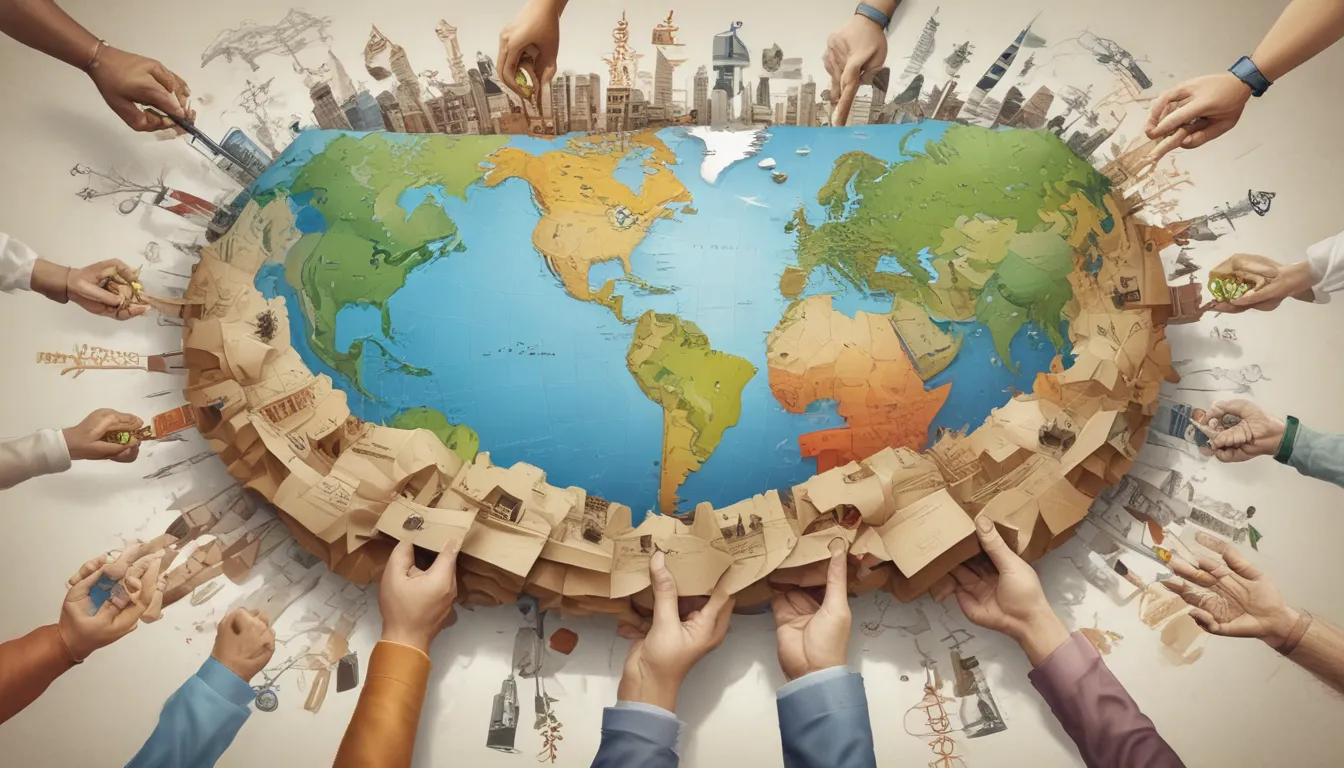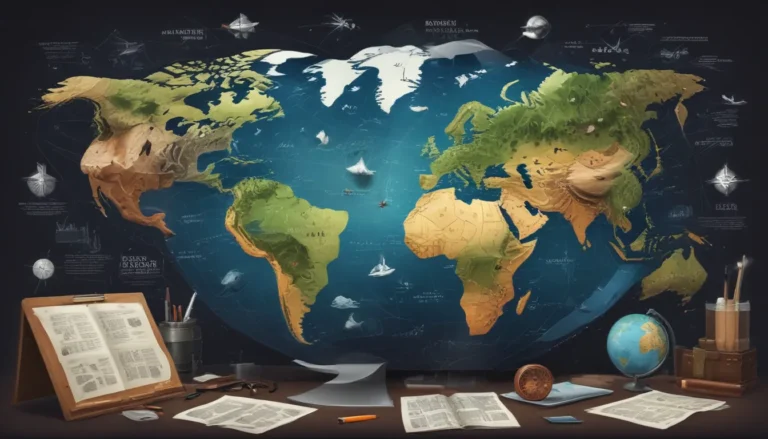A Note About Images: The images used in our articles are for illustration purposes only and may not exactly match the content. They are meant to engage readers, but the text should be relied upon for accurate information.
In today’s interconnected world, regional alliances play a vital role in shaping the political, economic, and social landscape. These alliances bring countries together to foster cooperation, address common challenges, and promote peace and stability within specific geographic areas. From promoting economic growth to enhancing security measures, regional alliances have a profound impact on global affairs.
Unveiling Regional Alliances: A Closer Look
Regional alliances are cooperative agreements formed between countries within a particular geographic area. These alliances are crafted to promote regional integration, address common challenges, and strengthen diplomatic ties among member states. They serve as platforms for dialogue, cooperation, and joint action on various issues affecting the region.
The European Union: A Beacon of Cooperation
One of the most well-known regional alliances is the European Union, consisting of 27 member states. The EU aims to promote economic and political cooperation among European countries, eliminating trade barriers and fostering economic growth through free trade agreements. This alliance has greatly influenced regional integration and contributed to the peace and prosperity of Europe.
NATO: Safeguarding Defense and Security
Another prominent regional alliance is the North Atlantic Treaty Organization (NATO), which focuses on collective defense and security among North American and European countries. Through joint military exercises and intelligence sharing, NATO enhances regional stability and counters security threats, including terrorism.
ASEAN: Fostering Cooperation in Southeast Asia
The Association of Southeast Asian Nations (ASEAN) is a regional alliance in Southeast Asia that promotes cooperation and regional integration among its ten member states. ASEAN plays a crucial role in addressing common challenges, enhancing cultural exchange, and fostering economic growth in the region.
The African Union: Pioneering African Integration
The African Union is a regional alliance that focuses on promoting political stability, economic growth, and social development in Africa. By working towards regional integration and cooperation, the African Union aims to enhance the continent’s influence on the global stage and address critical issues facing African nations.
Mercosur: Promoting Integration in South America
The Southern Common Market (Mercosur) is a regional alliance in South America that aims to promote economic and political integration among its member countries. By eliminating trade barriers and fostering economic cooperation, Mercosur contributes to the development and prosperity of South American nations.
The Impact of Regional Alliances on Global Politics
Regional alliances have a significant impact on global politics, influencing diplomatic relations, trade policies, and the balance of power among nations. These alliances provide a platform for countries to collaborate on issues of mutual interest, shape international policies, and promote multilateralism in the global arena.
Strengthening Diplomatic Relations
Through regular meetings and consultations, member states of regional alliances enhance their diplomatic ties and work together on global issues. By fostering dialogue and cooperation, regional alliances play a key role in maintaining peace and stability within their respective regions.
Addressing Common Challenges
Regional alliances provide countries with a forum to address common challenges, such as environmental issues, security threats, and conflicts. By coordinating efforts and sharing resources, these alliances contribute to the preservation of the environment, ensure regional security, and facilitate peaceful resolutions to disputes.
Promoting Economic Growth
By eliminating trade barriers and promoting free trade, regional alliances create an environment conducive to economic development and investment. Through economic cooperation and integration, these alliances help stimulate growth, create jobs, and boost regional prosperity.
The Role of Regional Alliances in Promoting Unity and Identity
Regional alliances play a crucial role in promoting unity, cultural exchange, and shared identity among member states. By celebrating shared history, cultural heritage, and values, these alliances strengthen the sense of belonging and solidarity within specific geographic areas.
Encouraging Cultural Exchange
Through cultural programs and initiatives, regional alliances promote understanding, tolerance, and appreciation for diverse cultures within the region. By facilitating cultural exchange, these alliances bridge the gap between nations, foster mutual respect, and promote social cohesion.
Enhancing Security Measures
Regional alliances play a key role in enhancing security measures and countering security threats within their respective regions. By conducting joint military exercises, intelligence sharing, and cooperation on counterterrorism efforts, these alliances contribute to regional stability and safeguard their member states.
Providing Assistance in Times of Crisis
During natural disasters and humanitarian crises, regional alliances provide assistance to member states by pooling resources, coordinating relief efforts, and offering support. By standing in solidarity with one another during times of need, these alliances demonstrate the power of cooperation and mutual aid.
Conclusion
In conclusion, regional alliances are instrumental in shaping the dynamics of global politics, fostering cooperation, stability, and economic growth among member countries. From promoting regional integration to addressing common challenges and enhancing security measures, these alliances play a crucial role in advancing peace and prosperity within specific geographic areas. By understanding the complexities and nuances of regional alliances, we can navigate the ever-changing landscape of international politics and appreciate the importance of collaboration and partnership among nations.
FAQs
-
What is a regional alliance?
A regional alliance is a collaborative relationship between countries within a specific geographic area, formed to promote cooperation, address common challenges, and strengthen regional integration and security. -
What are the benefits of regional alliances?
Regional alliances provide benefits such as collective defense, economic cooperation, enhanced diplomatic relations, greater regional stability, cultural exchanges, and a sense of shared identity among member countries. -
How do regional alliances impact global politics?
Regional alliances influence global politics by shaping diplomatic relations, trade policies, and the balance of power among nations. They play a significant role in international relations and geopolitical landscapes. -
Which are some notable regional alliances?
Notable regional alliances include NATO, the European Union, ASEAN, Mercosur, and the African Union, among others. These alliances have played crucial roles in shaping regional and global affairs. -
How are regional alliances formed?
Regional alliances are typically formed through the signing of treaties or agreements, with member countries coming together based on shared interests, common goals, or a need for collective security. Legal frameworks and decision-making processes may vary among regional alliances.
Our commitment to delivering trustworthy and engaging content is at the heart of what we do. Each fact on our site is contributed by real users like you, bringing diverse insights and information. Our dedicated editors meticulously review each submission to ensure accuracy and reliability. Explore and learn with us, trusting in our commitment to quality and authenticity.






